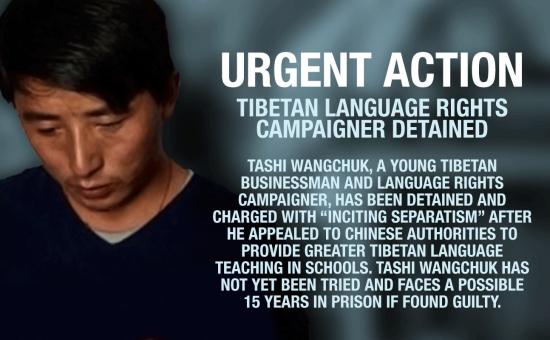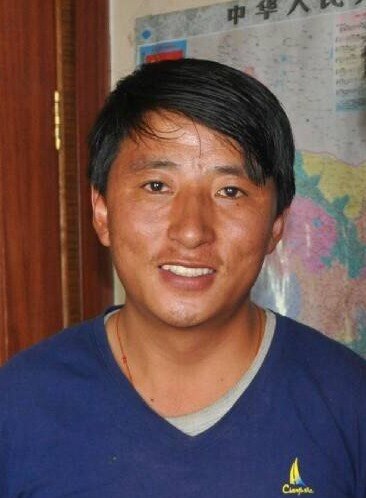Students for a Free Tibet (SFT) held a worldwide awareness day for imprisoned Tibetan-language activist Tashi Wangchuk on January 27, the anniversary of his arrest. Wangchuk was detained in January 2016 for allegedly “inciting separatism” following his appearance in a New York Times documentary, A Tibetan’s Journey for Justice, which saw him calling for Tibetan language education.
Wangchuk, a 31-year-old blogger and entrepreneur from Eastern Tibet, is shown in the New York Times video trying to lodge an official complaint with the Beijing authorities over the teaching – or lack thereof – of the Tibetan language. Although China officially maintains a bilingual education system in regions where minority languages are spoken, in reality Chinese dominates the curriculum, despite promises to safeguard Tibetan cultural autonomy.
The Chinese government detained him in January 2016. He is soon due to face trial, now that Chinese state prosecutors have concluded a second investigation into his actions. He faces up to 15 years in prison if found guilty – a likely result considering that 99.9% of defendants tried in China are convicted.
Despite Chinese government claims that he was “inciting separatism”, Wangchuk does not espouse Tibetan independence. He told the New York Times that his goal was to “preserve some of our nation’s culture”, and also stated that he views Chinese President Xi Jinping as having “promoted a democratic and law-abiding country”.
 SFT have reacted to his incarceration with protests and social media campaigns, as well as a petition, which can be found here, calling for Wangchuk’s “immediate and unconditional release”. Their demands have been heard by numerous international political representatives, including the UK Foreign Secretary and the US Secretary of State. Other human rights groups, including Human Rights Watch, Amnesty International, and the Tibetan Centre for Human Rights and Democracy, have also called for his release. A protest was held outside Chinese Embassy in London and messages sent to the Foreign Ministers of 18 countries.
SFT have reacted to his incarceration with protests and social media campaigns, as well as a petition, which can be found here, calling for Wangchuk’s “immediate and unconditional release”. Their demands have been heard by numerous international political representatives, including the UK Foreign Secretary and the US Secretary of State. Other human rights groups, including Human Rights Watch, Amnesty International, and the Tibetan Centre for Human Rights and Democracy, have also called for his release. A protest was held outside Chinese Embassy in London and messages sent to the Foreign Ministers of 18 countries.
SFT National Director Tenzin Tselha said that his case is “an example of the severity of the persecution Tibetans face for simply calling for their rights that are perceived as a threat by the Chinese government, despite the fact that they are protected by the international human rights laws and under the Chinese constitution.”





 Print
Print Email
Email